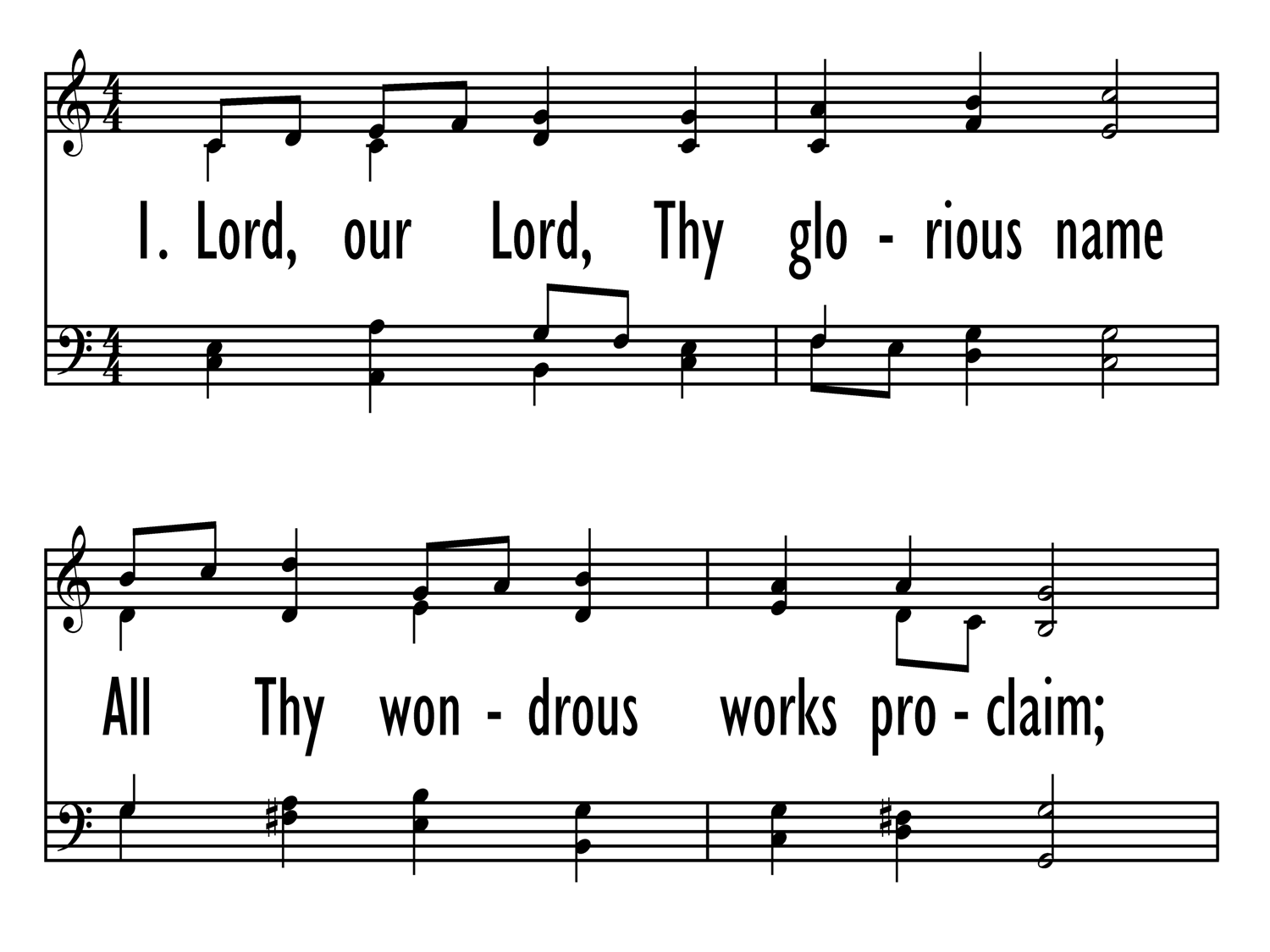- |
User Links
LORD, Our Lord, Your Glorious Name
Hymn Information
- First Line
- LORD, our Lord, your glorious name
- Text Source
- <cite>Psalter</cite>, 1912, alt.
- Tune Name
- GOTT SEI DANK DURCH ALLE WELT
- Tune Source
- J. Freylinghausen's <cite>Gesangbuch</cite>, 1704
- Topic
- Daily Prayer: Evening · Praise of God · Elements of Worship: Opening of Worship: Called And Gathered
Copyright Information
- Text Copyright
- Public Domain
- Tune Copyright
- Public Domain
- Reprint/Projection Information
- Words and Music: The Words and Music are in the Public Domain; you do not need permission to project or reprint the Words and Music.
Full Text
Scripture References
Thematically related:
- Refrain =
- st. 1 =
- st. 2 =
- st. 3 =
- st. 4 =
- st. 5 =
Further Reflections on Scripture References
God's glory displayed in the heavens inspires the psalmist and us to proclaim the greatness of Cod's name (st. 1, refrain). So great is the LORD's name and glory "in all the earth" that praise from even the weakest members of society, infants and children, will silence God's enemies (st. 2). The starry heaven's majesty shows what puny creatures human beings are (st. 3), and yet the One who fashioned the moon and stars has also crowned humans with almost godlike glory and honor (st. 4), appointing them to authority over all creation (st. 5)-this thought evokes in the poet a wonder that refuses to be silent. New Testament writers see these divine appointments for humanity fully realized only in Jesus Christ (Heb. 2:5-9). The Psalter Hymnal versification is from the 1912 Psalter.
Bert Polman, Psalter Hymnal Handbook
Confessions and Statements of Faith References
Further Reflections on Confessions and Statements of Faith References
God’s creative power, on display all around us, both obligates us and motivates us to give him worship. His work of creating all, and his constant care for all of it, stirs us in thanksgiving. Belgic Confession, Articles 12 and 13 spell these truths out beautifully: “We believe that the Father, when it seemed good to him, created heaven and earth and all other creatures from nothing, by the Word—that is to say, by the Son…”
Heidelberg Catechism, Lord’s Day 9 and 10, Questions and Answers 26-28 do the same: “…the eternal Father of our Lord Jesus Christ, who out of nothing created heaven and earth…”
Our World Belongs to God, paragraph 1 identifies the exclamation that gives us joy: “Our World Belongs to God!” and then in paragraph 8 testifies that “In the beginning, God—Father, Word, Spirit—called this world into being out of nothing, and gave it shape and order.”
LORD, Our Lord, Your Glorious Name
Additional Prayers
LORD, Our Lord, Your Glorious Name
Tune Information
- Name
- GOTT SEI DANK DURCH ALLE WELT
- Key
- C Major
- Meter
- 7.7.7.7


 My Starred Hymns
My Starred Hymns






